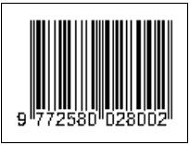GENDER-BASED STRATEGIES IN EXPRESSING GRATITUDE IN ENGLISH REALIZED BY INDONESIAN EFL LEARNERS
Downloads
Austin, J. L. (1962). How to do things with words: Second Edition. Cambridge, MA: Harvard University Press.
Bodman, J., & Eisenstein, M. (1988). May God increase your bounty: The expressions of gratitude in English by native and non-native speakers. Cross Currents, 15(1), 1–21.
Brown, P., & Levinson, S. (1987). Politeness: Some Universals in Language Usage. Cambridge: Cambridge University Press. https://doi.org/10.2307/3587263
Chen, I.-X., Ho, J.-C., & Yang, C.-Z. (2005). An Iterative Approach for Web Catalog Integration with Support Vector Machines. Proceedings of the 2nd Asia Information Retrieval Symposium (AIRS 2005), 703–708.
Cutting, J. (2002). Pragmatics and discourse. London: Routledge.
Dalilan. (2012). Strategies in Expressing Thanking in English Realized by Indonesian Learners. Indonesian Journal of English Language Teaching, 8(1), 51–71.
Eisenstein, M., & Bodman, J. W. (1986). "I very appreciate”: Expressions of gratitude by native and nonnative speakers of American English. Applied Linguistics, 7, 167–185. https://doi.org/http://dx.doi.org/10.1093/applin/7
Eisenstein, M., & Bodman, J. W. (1993). Expressing gratitude in American English. In G.Kasper & S. Blum-Kulka (Eds.), Interlanguage pragmatics (pp. 64–81). New York: Oxford University Press.
Hinkel, E. (1994). Pragmatics of interaction: Expressing thanks in second language. Applied Language Learning, 5, 53–91.
Holmes, J. (2013). An Introduction to Sociolinguistics: Fourth edition. Harlow: Pearson Education.
Hymes, D. H. (1972). On communicative competence. In B. Pride & J. Holmes (Eds.), Sociolinguistics (pp. 269–293). Harmondsworth: Penguin.
Kashdan, T. B., Mishra, A., Breen, W. E., & Froh, J. J. (2009). Gender differences in gratitude: Examining appraisals, narratives, the willingness to express emotions, and changes in psychological needs. Journal of Personality, 77, 691–730.
Koutlaki, S. (2002). Offers and expressions of thanks as face enhancing acts: Tí¦'arof in Persian. Journal of Pragmatics, 34(12), 1733–1756.
Leech, G. N. (1983). Principles of Pragmatics. London: Longman.
Mills, S. (2003). Gender and politeness. Cambridge: Cambridge University Press.
O'Keeffe, A., Clancy, B., & Adolphs, S. (2011). Introducing pragmatics in Use. New York: Routledge.
Pishgadam, R., & Zarei, S. (2011). Expressions of gratitude: A case of EFL learners. Review of European Studies, 3, 2.
Yoosefvand, A., & Rasekh, E. A. (2014). Gender Differences in the Expression of Gratitude by Persian Speakers. Journal of Applied Linguistics and Language Research, 1(1), 100–117.
Copyright (c) 2022 ETNOLINGUAL

This work is licensed under a Creative Commons Attribution-NonCommercial-ShareAlike 4.0 International License.
1. Copyright of this journal is possession of Editorial Board and Journal Manager, by the knowledge of author, whilst the moral right of the publication belongs to the author.
2. Legal formal aspect of journal publication accessibility refers to Creative Commons Atribusi-Non Commercial-ShareAlike (CC BY-NC-SA),implies that publication can be used for non-commercial purposes in its original form.
3. Every publications (printed/electronic) are open access for educational purposes, research, and library. Other that the aims mentioned above, editorial board is not responsible for copyright violation.










